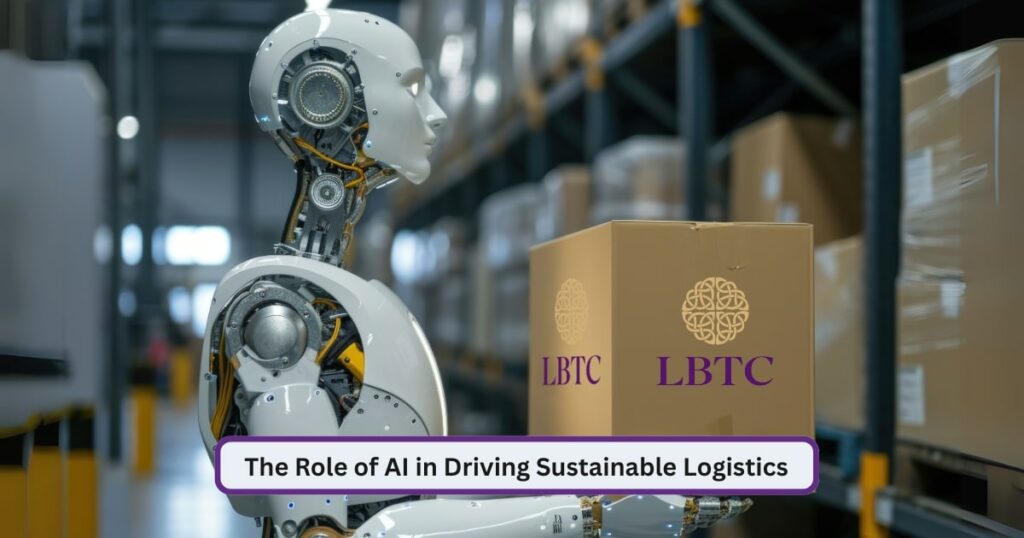
Businesses consistently adapt new ways to minimise their ecological footprint while operating seamlessly and profitably, as sustainability is essential to our operational settings. The transformation is happening around the supply chain, where logistics is a key component. The following blog post explains the impacts of AI technology on sustainable logistics within supply chains. This can help industry professionals, students, and anyone interested in logistics and sustainability.
Understanding Logistics in Supply Chain Management
Logistics involves the planning, implementation, and coordination of the movement of goods and services from a given place to their point of delivery. This network involves managing supply and demand appropriately. The entire area of logistics includes transportation, warehousing, managing inventories, and order fulfilment, helping to run operations seamlessly in supply chains globally.
AI and Its Impact on Sustainability in Logistics:
Artificial Intelligence is revolutionising logistics. It rapidly processes large amounts of data using conventional methods and delivers accurate results. Great results can be achieved in sustainability through this integration of process optimisation.
- Reduction in Carbon Footprint: AI plays an impactful role in logistics by minimizing the carbon footprint of supply chains. AI technologies help in optimizing the route plan and delivery lineup, which ultimately leads to reduced fuel consumption and emissions. For example, traffic patterns are advised by the AI algorithms, providing the best routes for delivery trucks, which helps save delivery time and energy.
- Cost Savings for Businesses: AI-based logistics combine sustainability and increase cost-efficiency in organizations. Automating warehouse operations and supply chain processes has resulted in substantial cost savings. AI-integrated robots can perform monotonous tasks faster and more accurately than humans. Operational efficiency reduces energy consumption and minimizes waste, helping to lower operational costs.
- Enhanced Efficiency and Customer Satisfaction: Customer service and satisfaction are key components of sustainability, which can be improved by using AI technologies. In businesses, machine learning algorithms are used to manage inventory through customer demand prediction analysis. Sustainability goals can be achieved by minimizing inventory wastage and avoiding overproduction. Real-time tracking of products fosters trust and transparency, ultimately increasing customer satisfaction.
The Importance of Logistics Course
Logistics Course are invaluable for fully leveraging the potential of AI in achieving sustainable logistics. These courses provide the foundational knowledge and skills necessary for understanding modern supply chain management. By enrolling in Logistics Course, professionals and students can gain insights into how AI innovations can be applied practically in the logistics sector. Additionally, these courses emphasize the importance of sustainable practices, helping learners to integrate these principles into their future careers. Through Logistics Course, individuals are better equipped to navigate the complexities of sustainability in logistics.
Future Trends and Challenges
The advantages of AI-powered logistics are evident; however, emerging technologies and potential complications must be considered.
- Emerging Technologies: The future of logistics is intriguing, with innovations like AI-powered drones and blockchain integration at the forefront. AI-powered drones ensure enhanced performance in distributing logistics, especially for last-mile shipping in urban locations. Blockchain technology, when integrated with AI, can improve transparency and safety in supply chains, building trust and integrity.
- Challenges: Despite AI’s promises, challenges such as high implementation costs and data privacy concerns remain. Deploying AI systems requires considerable upfront financial investments in innovation and training. Additionally, issues related to data security and privacy arise as businesses gather and analyse vast amounts of sensitive information. Addressing these challenges will be vital for the widespread adoption of AI in logistics.
Conclusion
In conclusion, AI is leading the way for sustainable logistics by minimizing environmental impacts, reducing expenses, and improving operational efficiency. Companies must also navigate the associated challenges to fully realise their potential, as everything is getting integrated with AI for operations. By executing this, logistics and supply chain management can become more sustainable, reliable, and responsive to the needs of the contemporary world.
The journey towards sustainable logistics is complex yet compelling, assuring a future where modern technology and environmental stewardship go hand in hand. Industry professionals, students, and the broader public must stay informed and engaged as this transformative journey unfolds. Engaging in Logistics Course is a vital step towards achieving these essential goals in the evolving landscape of sustainable logistics.

Leave a Reply